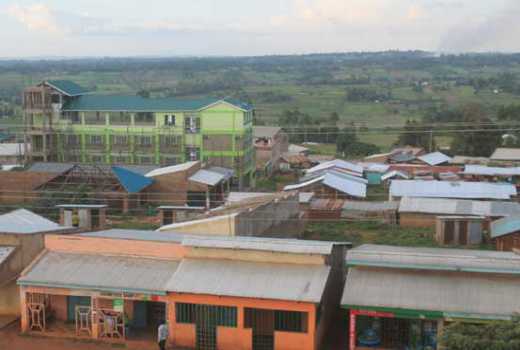×
The Standard e-Paper
Stay Informed, Even Offline

NAIROBI, KENYA: Five years ago, Kiteere Market in Rongo, Migori County was a low key business centre. A few retail shops dotted the remote market centre.
People only knew of a ‘silent’ college by name Moi Institute of Technology, whose students would only be seen during opening and closing days.